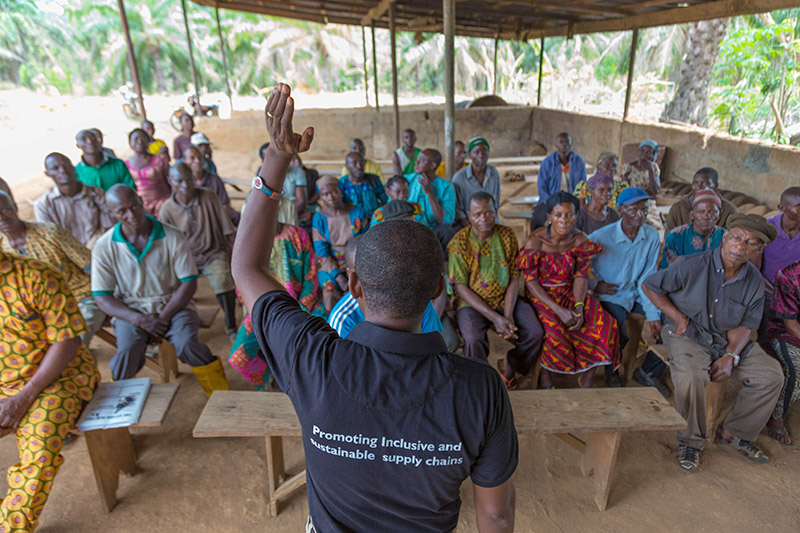
The mid-term review is an opportunity for Solidaridad to reflect on how it works, identify corrective actions to achieve maximum results by 2020, and inform its strategic thinking post-2020. The Advocacy for Change and Practice for Change programmes – the backbone of the organisation’s Multi-Annual Strategic Plan 2016-2020 – were assessed during the process. The mid-term review also looked at 44 individual projects and five learning and innovation themes, including gender inclusiveness and impact investment.
The review, conducted by an independent research team, documents the (un)expected, positive and negative, outcomes and lessons learned during the programmes’ implementation. The research team carried out a participatory approach to facilitate dialogue, conducting workshops and interviews with key stakeholders, surveying more than 300 staff, partners and beneficiaries, and reviewing project documents.
The participatory approach has been received positively by Solidaridad offices, partners and stakeholders as it enhanced strategic consultation and strengthened partnerships.
We are encouraged by the findings of the review and, where areas for improvement have been identified, we have already started addressing them. The participatory approach has been received positively by Solidaridad offices, partners and stakeholders as it enhanced strategic consultation and strengthened partnerships.
The mid-term review focused on five factors of Solidaridad’s programme implementation; relevance, effectiveness, efficiency, sustainability and programme management. An executive summary of the review, including more details of the findings and Solidaridad’s response, is available to read online.
Programme success
The review found that both the Advocacy for Change and Practice for Change programmes are effective at a network-wide level.
Solidaridad is seen as a trusted partner, and has an approach to facilitation and negotiation that is respectful, neutral, cooperative, evidence-based, technically strong, and closely anchored to the ground reality.
It stated: “The positive results on dialogue and advocacy seem to be due to the fact that Solidaridad is seen as a trusted partner, and has an approach to facilitation and negotiation that is respectful, neutral, cooperative, evidence-based, technically strong, and closely anchored to the ground reality”.
We are encouraged by the findings that both beneficiaries and stakeholders rate Solidaridad’s work as relevant to their needs, and that we have the mechanisms for scaling in place. Our priority for the coming years is to further embed, test, and prove these scaling mechanisms.
Room for improvement
Solidaridad recognizes room for improvement and will take steps in response to the research team’s recommendations. For example, we will review assumptions around digital inclusion, grow investment in (senior) expertise, and improve communication to explain complex processes.
The mid-term review has confirmed many of our own observations, and has given us ample input for the coming two years of implementation.
We realize Solidaridad’s strategy is complex, intertwined and multifaceted, and our network organisation is large and dynamic. The mid-term review has confirmed many of our own observations, and has given us ample input for the coming two years of implementation.
The end of programme evaluation for Advocacy for Change and Practice for Change will be carried out over the course of 2020. A Terms of Reference for this evaluation will be developed mid-2019.
In the meantime, Solidaridad has already started to draft the outlines for the Multi-Annual Strategic Plan 2021-2025, which will be informed by findings from the latest mid-term review.
- Read more in the Executive summary of Solidaridad’s mid-term review
- See Solidaridad’s response to the mid-term review results
Read about Solidaridad’s impact
